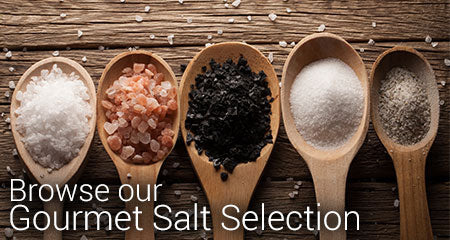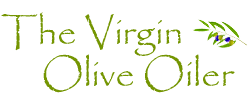Can I Restore My Gut Microbiota After Antibiotics? - Blog # 46

Hello Everyone and welcome back to another Friday blog. Almost all of us have had an antibiotic at some point. These miracle drugs not only kill the harmful pathogen, but kill our good microbes as well. Today I wanted to look at the after-effects of antibiotics and address what we can do to restore our gut microbiota. Why? Consequences include indigestion, brain fog, mood swings, bloating, susceptibility to infection or frequent illness, constipation, acne or skin issues and a myriad of chronic diseases…First, let's look at what the human microbiota is.
‘‘Human microbiota’’ is the term used to describe all the microorganisms (bacteria, eukaryotes, archaea, and viruses) within the human body, while the microbiome is defined as the complete catalog of these microbes and their genes (Dave et al., 2012).” There are roughly 10X more microorganisms than cells in our bodies. When our gut microbiota is diverse, health is promoted and they aid in preventing chronic disease. In contrast, poor diversity is a characteristic feature of chronic diseases including diabetes, obesity, asthma and digestive issues. These microbes work with our bodies in a symbiotic relationship. We feed them fiber; they aid in absorbing nutrients, eliminate toxins, destroy harmful microbes, help our immune system, synthesize vitamin K2 (about 50%), thiamine, folate, biotin, riboflavin and panthothenic acid, are intricately involved in metabolism and even our brain! WOW!!! If you aren’t eating fiber and feeding your microbes…
”The bidirectional communication between the brain and gut microbiota has been termed the MGB axis, and preclinical studies indicate that dysbiosis (dysregulation of the microbiota) influences anxiety and stress behaviors (Foster and McVey Neufeld, 2013), suggesting that the MGB could influence the risk of disease, including anxiety and mood disorders.” Check out Blog # 45
Researchers gave 3 broad-spectrum antibiotics to 12 healthy men for 4 days resulting in near complete eradication of gut bacteria. It took about 6 months for a slow, gradual recovery of most species, but they were “still missing nine of their common beneficial bacteria and a few new potentially non-desirable bacteria had colonized the gut. The findings are published today in Nature Microbiology.” This is a real problem!!! 6 months and you are not back to normal?! To make matters worse, over-prescribing and poor patient follow-through has created resistance factors in bacteria to antibiotics.
Infections like pneumonia, TB, gonorrhea, C-difficile, staphylococcus, streptococcus and food-borne diseases are becoming increasingly more difficult to treat, due to antibiotic-resistant forms of pathogens like MRSA (Methicillin-resistant Staphylococcus aureus). “MRSA is common in hospitals, prisons, and nursing homes, where people with open wounds, invasive devices such as catheters, and weakened immune systems are at greater risk of hospital-acquired infection. MRSA began as a hospital-acquired infection but has become community-acquired, as well as livestock-acquired.” Antimicrobial resistance (AMR) is considered the “next threat” in medicine.
“AMR can affect anyone, of any age, in any country. According to the Centers for Disease Control and Prevention (CDC), more than 3 million antibiotic-resistant infections occur in the U.S. each year, and 48,000 people die as a result. And according to a recent GAO report, because of inadequate surveillance, this may actually be an underestimate of the extent of the problem. A lack of sufficient point of care diagnostics also makes it difficult for physicians to get the right treatment to the right patient at the right time. As a result, AMR threatens many modern medical advances that depend on antimicrobial medicines to fight potential infections, including joint replacements, organ transplants and cancer therapy.”
“Worldwide antimicrobial resistance is increasing at an alarming rate. By 2050, antibiotic resistant microbial infections are projected to cause millions of additional deaths and cost taxpayers about $100 trillion.”
What can we do to prevent resistance to antibiotics and restore our gut microbiota? First, is very important to fully complete whatever antibiotic we are taking, then possibly get tested to make sure we are no longer infected. Don’t take antibiotics for a viral infection! Next, we must focus on replenishing the good microbes. They help fight the bad ones too! Not only do antibiotics wreak havoc on our microbiota, but poor diet plays a major role. Poor diet and high sugar diets can feed the harmful microbes and diminish the good ones. This causes inflammation in the gut allowing the bad microbes to migrate out to other areas in the body, i.e. leaky gut.
“The human interactome encompasses the gut microbiome; its genes, proteins, and metabolites; and host factors and external environmental factors that concomitantly shape the microbiome and influence health and disease. The MGB axis contains pathways through which the microbiota influences the CNS, cognition, and mood. Furthermore, microbially produced proteins and metabolites can influence the host stress response system, CNS functioning, and the host epigenome (record of the chemical changes to the DNA and histone proteins of an organism) and transcriptome (all RNA transcripts). Traumatic experiences and stress can also alter the gut microbiota via HPA axis dysregulation and subsequent release of stress hormones or neurotransmitters that influence gut physiology, microbiota habitat, and composition and bacterial gene expression.”
As we can see, our microbes play a major roll in our health and wellbeing. So, how do we restore balance to our bodies?
- Take a good prebiotic and probiotic - prebiotics are the food for your good microbes (form of dietary fiber). Probiotics are the good microbes.
- Eat a broad spectrum of functional foods (blog #40): beans, legumes, nuts, seeds, cruciferous, brightly colored veggies and fruits for phytonutrients and fiber, red wine and grape skins, dark chocolate, onions and garlic.
- Eat fermented foods: plain Greek yogurt, sauerkraut, kimchi, kefir, kombucha.
- EVOO - Rich in polyphenols that are selectively antimicrobial! Enhances good microbes, while destroying bad. Polyphenols are antioxidant and anti-inflammatory. EVOO is one of the most powerful functional foods! EVOO has been described as a “key bioactive food because of its high nutritional quality and its particular composition of fatty acids, vitamins and polyphenols. Indeed, the beneficial effects of EVOO have been linked to its fatty acid composition, which is very rich in monounsaturated fatty acids (MUFA).” The polyphenols in EVOO naturally protect the plant from viruses, bacteria and oxidation. It does the same thing for our bodies!! EVOO has 200 times the amount of vit E and 80 times the amount of vitamin K when compared to virgin coconut oil. EVOO acts dually as a supplier and cofactor of B-carotene (converted to vit A in small intestine), increasing the absorption and bioavailability of carotenoids over that of eating fruits and vegetables! EVOO also increases levels of peptide YY and enteroglucagon. Transport proteins in the brush border membrane are highly expressed in diets rich in fats. EVOO literally can help heal our intestinal lining, restoring normalization to the intestinal wall. Olive constituents possess antimicrobial, anticancer, antidiabetic, antioxidant, antihypertensive, antiinflammatory, and antinociceptive properties and contribute to cardioprotective, gastroprotective, and neuroprotective activities.
We can do a lot to restore our gut microbiota and protect our health. Staying away from sugary foods and drinks while incorporating functional foods and EVOO can help us reach balance. The results are clear mind, clear skin, more energy, improved digestion and overall improved health.
So, until next time my friends, drink, drizzle, digest high polyphenol EVOO, eat wild-caught fatty fish rich in Omega 3s, eat foods high in lutein, drink lots of water, get a good pre/probiotic, exercise your body and mind, add a few minutes of mindful meditation to your day to combat stress, get plenty of sleep and...turn off the light!! #EVOO







Comments (2)
This blog contains really valuable info for me. Thanks for all your research.
This blog contains really valuable info for me. Thanks for all your research.